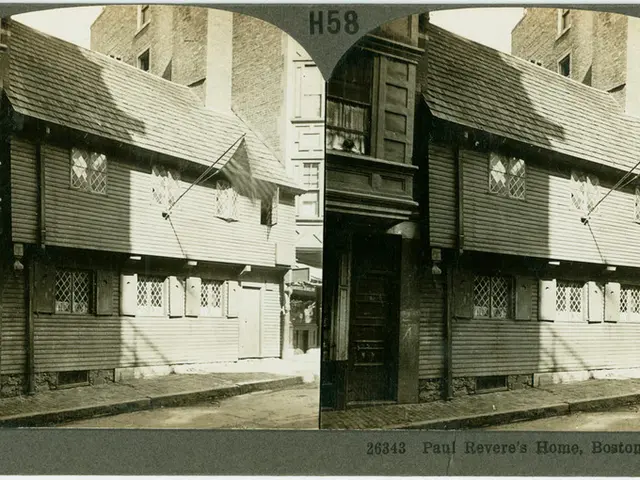Court Mandates Washington to Accept Approximately 12,000 Refugees
Trump's Refugee Stalemate: Court Pushes Back Against Administration
Here's the lowdown on the current refugee drama going on between the U.S. government and the courts.
Recently, U.S. District Court Judge Jamal Whitehead, after a heated court room tussle, ordered the Trump administration to admit around 12,000 refugees to the United States. This follows the administration's attempts to disrupt the nation's refugee admissions program.
Judge Slaps Back
During a hearing last week, the administration maintained it should only admit 160 refugees, and if forced to admit thousands, would likely appeal. However, Judge Whitehead wasn't buying it. He wrote, "The government is not free to disregard laws and court orders while seeking clarification."
The Refugee Resettlement program, established by Congress in 1980, is a legal means for people displaced by war, natural disaster, or persecution to settle in the United States. It's a lengthy process involving thorough screening, and differs from asylum, which permits people to stay in the U.S. due to fear of persecution in their home country.
Trump's Roadblock
President Donald Trump issued a decree on January 20, 2025, suspending the program. This led to a lawsuit by refugees and major refugee aid organizations, who argued that the administration's lack of action had forced them to let go of staff and freeze funding.
Judge Whitehead, appointed by former President Joe Biden in 2023, blocked Trump's decree, stating that it was unconstitutional and against Congress's will to establish the national refugee admissions program.
Ninth Circuit Court's Intervention
In March, the U.S. Court of Appeals for the Ninth Circuit partially stayed Judge Whitehead's decision, acknowledging the government's argument of broad presidential powers. However, the court also emphasized that the administration should continue processing applications for those already approved for entry.
Resistance and Consequences
Despite the orders, the administration has persisted in non-compliance. Refugees with approved status and plane tickets remain stranded, while thousands face prolonged legal uncertainty due to the halt in green card processing by USCIS.
Plans for a new travel ban targeting up to 43 countries are in the works, but not yet implemented. Consequently, USCIS has a backlog of 12,394 green card applications from asylum seekers and refugees, left without a clue about when their applications might be processed.
The administration's non-compliance has sparked Freedom of Information Act (FOIA) requests demanding transparency.
Stay tuned for updates in this ongoing saga!
- Judge Whitehead's order for the Trump administration to admit approximately 12,000 refugees contradicts the administration's stance, which maintains that it should only admit 160 refugees and is likely to appeal if forced to admit thousands.
- The Refugee Resettlement program, a legal means for refugees to settle in the United States, is different from asylum, which allows people to stay due to fear of persecution in their home country.
- Politically, President Donald Trump's decree suspending the Refugee Resettlement program led to a lawsuit by refugees and major refugee aid organizations, arguing that the administration's lack of action forced them to let go of staff and freeze funding.
- The ongoing saga between the administration and the courts regarding refugee admissions into the United States has led to resistance and consequences, such as refugees with approved status and plane tickets remaining stranded, and a backlog of approximately 12,000 green card applications from asylum seekers and refugees awaiting processing.






